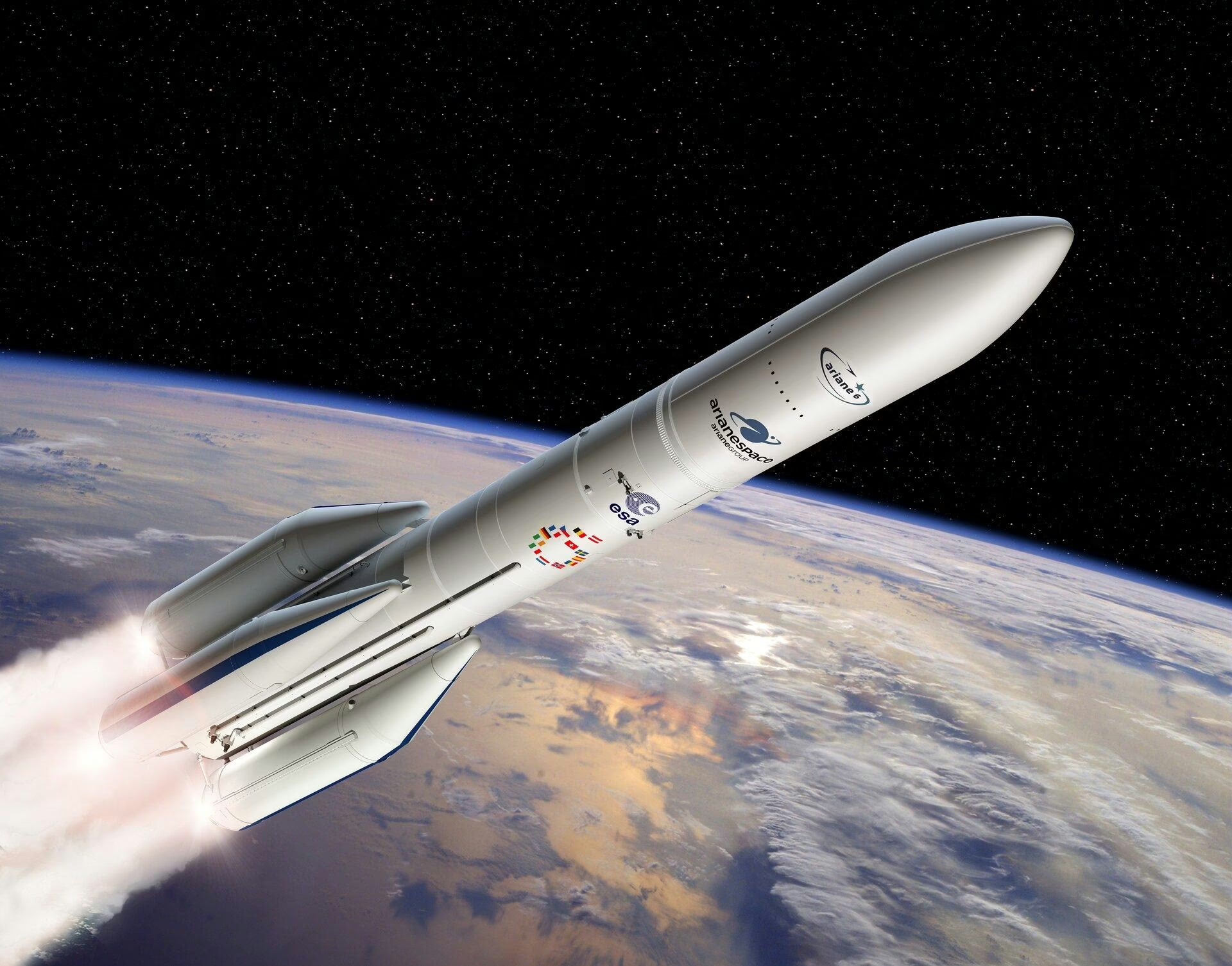
PARIS–Europe’s three leading countries in space launchers have issued a joint statement that sets the stage for further cooperation on Ariane, Vega and micro-/mini-launcher programs within the framework of the European Space Agency (ESA).
The agreement between France, Germany and Italy was announced as the ESA’s ministerial council was opening here, where the triennial gathering is taking place Nov. 22-23. Two themes have emerged as overarching–climate change and Europe’s sovereignty. Access to space is deemed critical for independence, hence the importance of launchers at the meeting.
In the statement, the three countries concur on the need to review the funding for the Ariane 6 medium- to heavy-lift rocket and the light Vega-C in their “exploitation” phase (i.e. stabilized operations after a learning curve, in ESA’s jargon). They agree on factoring in the level of commercial risk in a launcher’s funding arrangement. They also settle on the introduction of micro- and mini-launchers in ESA launch service procurement.
While France is by far the largest contributor to Ariane programs, Italy’s Avio leads the Vega project and Germany has a fledgling but potentially significant small launcher sector, with three startups.
“France wants to secure Ariane 6’s stabilized operations phase,” explains Daniel Neuenschwander, ESA’s director for space transportation. “Italy wants to manage the financial risk they are taking. Meanwhile, Germany wants [HyImpulse, Isar Aerospace and Rocket Factory Augsburg] to compete for ESA launches. They all recognize that ESA’s model in launchers has to evolve. And they accept one another’s interests, [pledging] mutual support.”
Three ministers signed the statement: Bruno Le Maire, the French minister of the economy, finance, and industrial and digital sovereignty; Robert Habeck, Germany’s federal minister for economic affairs and climate action; and Adolfo Urso, Italy’s minister of enterprises and made in Italy. They have charged ESA to propose a way forward next year. June 2024 is the deadline they have set for the new architecture, including the legal framework, to become effective.
“The statement and the timeline constitute a key enabling factor for programmatic decisions at the council,” Neuenschwander says.
“The agreement unblocks discussions that influence subscriptions,” adds ESA Director General Josef Aschbacher. For ESA, the ministerial council is essentially about finding money for its programs–after months of preparation, member states have two days to make subscriptions.
Aschbacher is proposing €1.1 billion ($1.2 billion) for Ariane 6 and Vega-C. About two-thirds of the amount will go to Ariane 6 and one-third to Vega-C, Neuenschwander says. Of Ariane 6’s funding, €400 million will go to the more powerful Ariane 6 Block II, which Amazon will inaugurate with its Kuiper constellation.
In round numbers, France contributes 50% of Ariane 6, Germany 20% and Italy 15%, Neuenschwander says. With the other European countries involved in the program, they hope to bring in €195 million ($201 million) for Ariane 6’s transition phase at the ministerial council. The transition is to last from the second launch to the 15th, the exploitation phase beginning with the 16th.
The current situation in launchers is worrying, European Commissioner Thierry Breton says. The Ariane 5 heavy launcher is just a few months from the end of its life. Ariane 6–its successor–is three years late, and Vega has been successfully but gradually transitioning to the upgraded Vega-C. Meanwhile, Soyuz is no longer launched from Kourou, as Russia’s invasion of Ukraine caused the termination of the cooperation.
The resulting lack of capacity has a direct impact on the deployment of services like the EU’s Galileo constellation for navigation, Breton emphasizes. “It is not at risk but the situation cannot be sustained for long,” he says. “There is an urgent need to remedy the problem with a European solution.”
A future family of launchers would have to rely on a fully European supply chain, Breton says. “We are putting in place coordination with the European Commission regarding the crucial topic of developing electrical, electronic and electro-mechanical components,” Aschbacher says.


